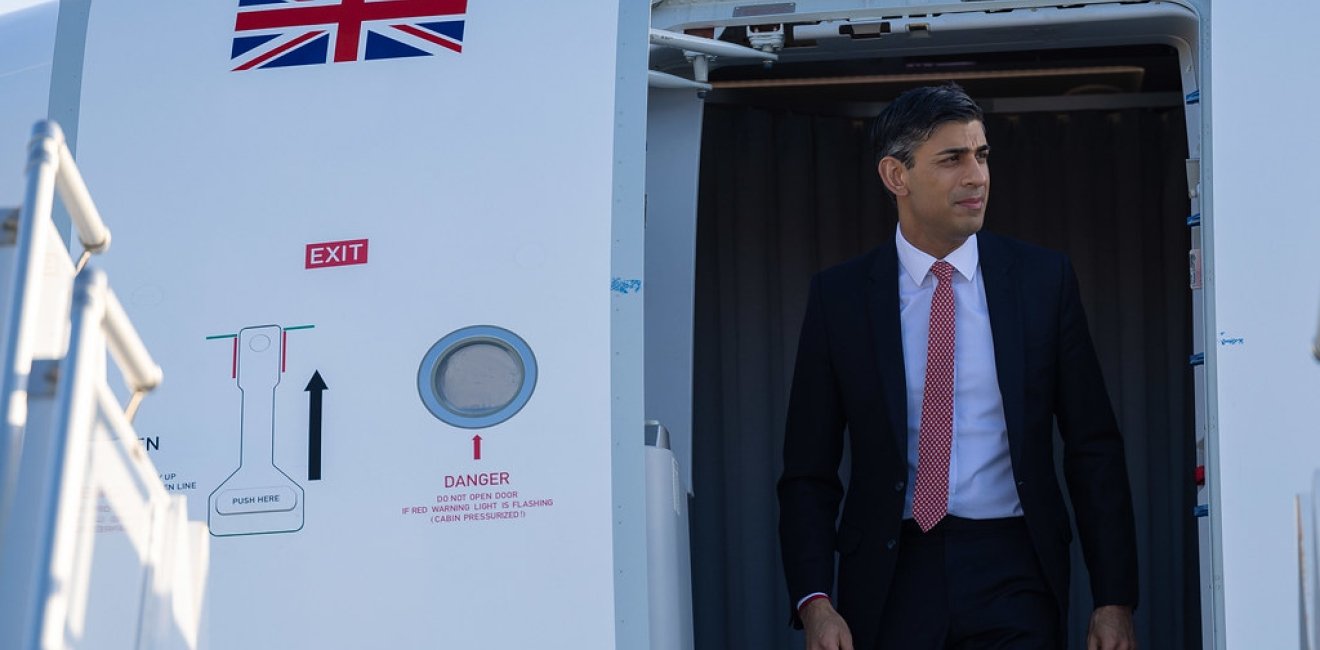
A blog of the Indo-Pacific Program
Britain’s success in joining the world’s most ambitious trade agreement is a huge victory for Prime Minister Rishi Sunak and post-Brexit UK more broadly. After all, it is a concrete achievement of the Global Britain vision, and the UK’s ambitions to recast itself as a world power. But it’s an even bigger win for the Comprehensive and Progressive Trans-Pacific Partnership deal that is defining not just the trade rules, but providing the baseline for the rules of economic engagement in Asia.
The lackluster response to the UK’s entry into the CPTPP, however, should come as no surprise. Critics are less likely to attack what the trade deal actually is, but rather what Britain gets from it, or actually what it doesn’t. After all, even when the now 12 member CPTPP bloc represents 15 percent of global GDP, Britain’s own growth rate is expected to inch up only by 0.1 percent over the next decade. In short, it hardly makes up for the loss of tariff- and red tape-free market access to the European Union that Brexit withdrew from on its own accord. It’s obvious that what the British economy needs the most to jump-start its economic engine is restoring lucrative trade relations with its immediate neighbors, before turning to Asia. But joining the CPTPP represents a diplomatic win for the Sunak government as it marks the first major trade deal signed by post-Brexit Britain, and steps up the country’s presence in the world’s most populous and most dynamic region.
For the Indo-Pacific, meanwhile, Britain’s entry into the CPTPP as its first European member aligns with the country’s endeavors in recent years to engage more fully in the region militarily and politically. The UK has stepped up its commitment to Asia, not least through the signing onto the AUKUS trilateral security agreement together with the United States and Australia focused on nuclear submarines. Britain has undoubtedly stepped up its commitment to work together on multilateral deterrence against China. Through CPTPP, London is further enhancing its commitment to multilateral cooperation, this time on defending the rule of law and fair trade.
London’s interest and commitment to join the group has in turn elevated the allure of the agreement.
Yet the road ahead for the CPTPP will only become more difficult henceforth. Britain’s application to join the trade pact had been welcomed by the original 11 members, and much encouraged by Japan, which had been the first country to sign a bilateral trade agreement with the post-Brexit UK. London’s interest and commitment to join the group has in turn elevated the allure of the agreement. Since then, however, China submitted its application to join the group in September 2021, the day after the United States, Britain, and Australia announced their plan to move forward with the AUKUS defense alliance. Moreover, Taiwan too filed its application to join one week after China did.
While the process to accept Britain’s membership to the CPTPP had been relatively straightforward and focused on specific trade-related concerns, assessing China’s application will be anything but. A divide has already emerged amongst the current CPTPP member countries on how to proceed with the possibility of China joining the group that is driven largely by political concerns. Adding to the political dilemma is the prospect of considering Taiwan’s application. While Taiwan may be more accession ready than China, the application process would be to consider each potential membership in order of submission of interest. Yet accepting Taiwan before China would be politically fraught, and unlikely to be accepted by many of the CPTPP member countries.
Another challenge is the fact that the United States remains outside of the CPTPP, having withdrawn from the original Trans-Pacific Partnership agreement in 2017. The Biden White House has expressed no interest in reversing the Trump administration’s decision, and the possibility of the United States joining the CPTPP in the near future remains unlikely. Washington’s absence from the pact will make it more difficult for the now 12 member group to make a firm decision either way regarding China’s application to the group which in turn will continue to cloud the partnership.
Whether or not Britain joining the CPTPP becomes the political highlight of the trade agreement remains to be seen.
Follow Shihoko Goto, Director for Geoeconomics and Indo-Pacific Enterprise and Deputy Director, Asia Program, on Twitter @GotoEastAsia.
The views expressed are the author's alone, and do not represent the views of the U.S. Government or the Wilson Center. Copyright 2020, Asia Program. All rights reserved.
Author


Indo-Pacific Program
The Indo-Pacific Program promotes policy debate and intellectual discussions on US interests in the Asia-Pacific as well as political, economic, security, and social issues relating to the world’s most populous and economically dynamic region. Read more


Wahba Institute for Strategic Competition
The Wahba Institute for Strategic Competition works to shape conversations and inspire meaningful action to strengthen technology, trade, infrastructure, and energy as part of American economic and global leadership that benefits the nation and the world. Read more





